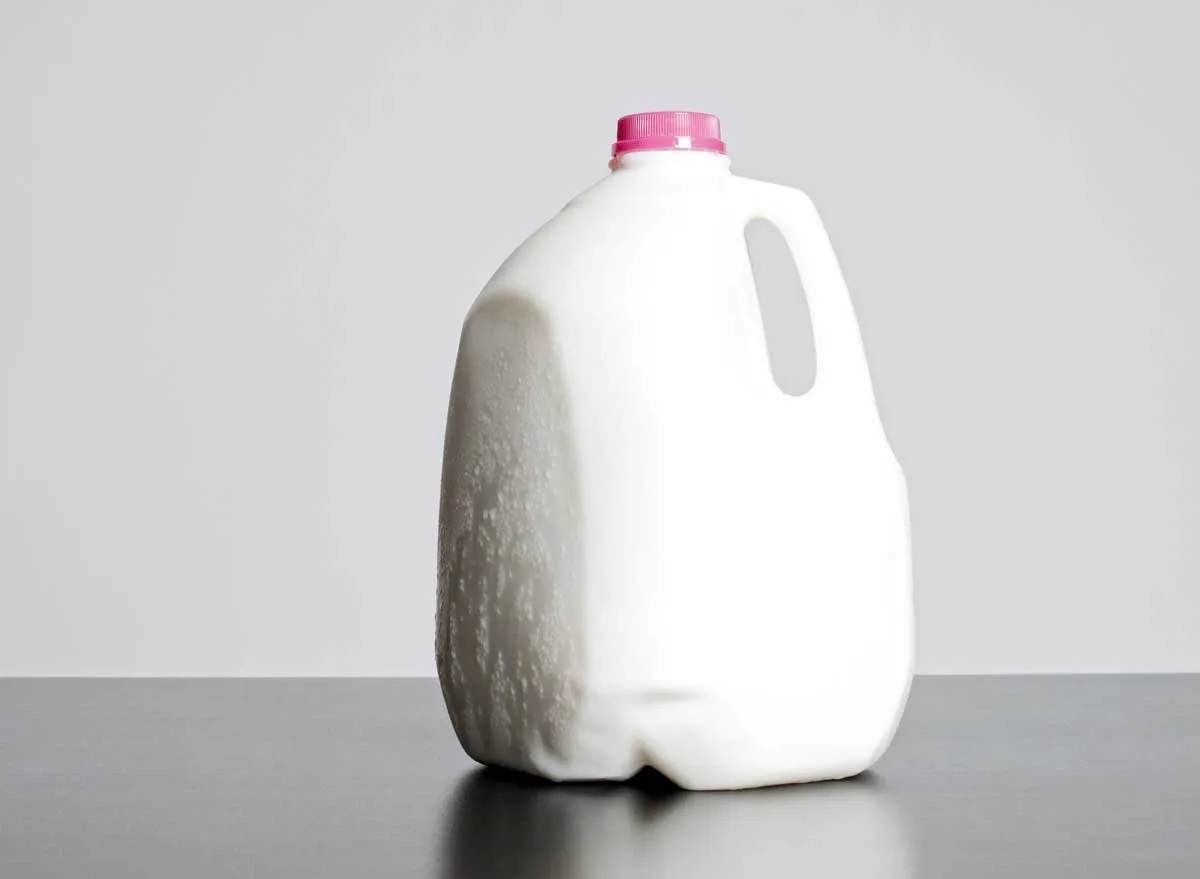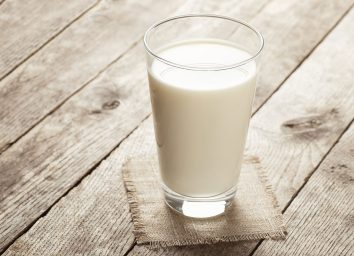One Major Effect of Drinking Whole Milk, Say Experts

Is whole milk making a comeback?
Within the past decade, grocery stores across the country have introduced dairy-free, milk alternatives made from a range of different plant-based foods including oats, almonds, macadamia, pea protein, cashews, hemp—the list goes on. And customers have shown a liking for non-dairy creamers and vegan-friendly frozen desserts. In 2020, the global dairy alternatives market size was valued at $20.5 billion—and that figure is projected to grow at an aggressive rate into 2030.
So it’s a bit surprising, then, to read that whole milk may be working its way back into the spotlight? At least, that seems to be the case in some restaurants and cafes across New York City, as Grubstreet reports.

Grubstreet writer Emily Sunberg spoke with Meetka, a waitress in downtown Manhattan, who said she started noticing fewer guests ask for oat milk earlier this summer.
“Regulars started ordering whole milk and people who I’d assume from the outside were alternative milkers were no longer fulfilling my judgments,” Meetka told Grubstreet. While this is just one instance, it’s possible that it could foreshadow an upcoming trend. Or, should we say, the rebirth of a classic beverage?

Non-dairy milk products surged in popularity during the height of the COVID-19 pandemic, specifically between the months of March and June 2020. The spread of the infectious disease rocked various food supply chains, including meat, dairy products, and eggs, resulting in major shortages nationwide.
Between school and restaurant closures the overall demand for these items like cow’s milk declined, which left farmers with no other choice but to dump millions of gallons of spoiled milk. In April 2020, a representative of the Dairy Farmers of America said the demand for dairy in the U.S. had dropped by approximately 12-15%.
But the question remains, are plant-based milk options equivalent in nutrition, or considered healthier than traditional cow’s milk? Some experts would argue, no, largely because some plant milks aren’t fortified with all of the nutrients that are naturally occurring in cow’s milk. This includes calcium, potassium, B vitamins, vitamin D, and vitamin A (found in whole milk).
In a previous article for Eat This, Not That!, Lauren Hoover, RD, MS at SHIFT in Chicago explained that, while oat milk is a great choice for those who are cannot stomach lactose, or follow a vegan diet, it shouldn’t be viewed as nutritionally superior.
“I would not say that oat milk is healthier than cow’s milk, they are just different,” Hoover explained. “Cow’s milk has more protein and also is a complete protein, meaning it contains all of the essential amino acids. Oat milk can be a great alternative for those that are unable to tolerate dairy or milk.”
Whether or not whole milk is indeed making a comeback in Americans’ morning cups of coffee or used as a base for their favorite breakfast smoothies, one thing is certain: Whole milk offers a host of nutrients that some plant-based milk alternatives may not be able to deliver on their own.
For more, be sure to check out This Popular Oat Milk Is Being Criticized for Its Ingredients.








